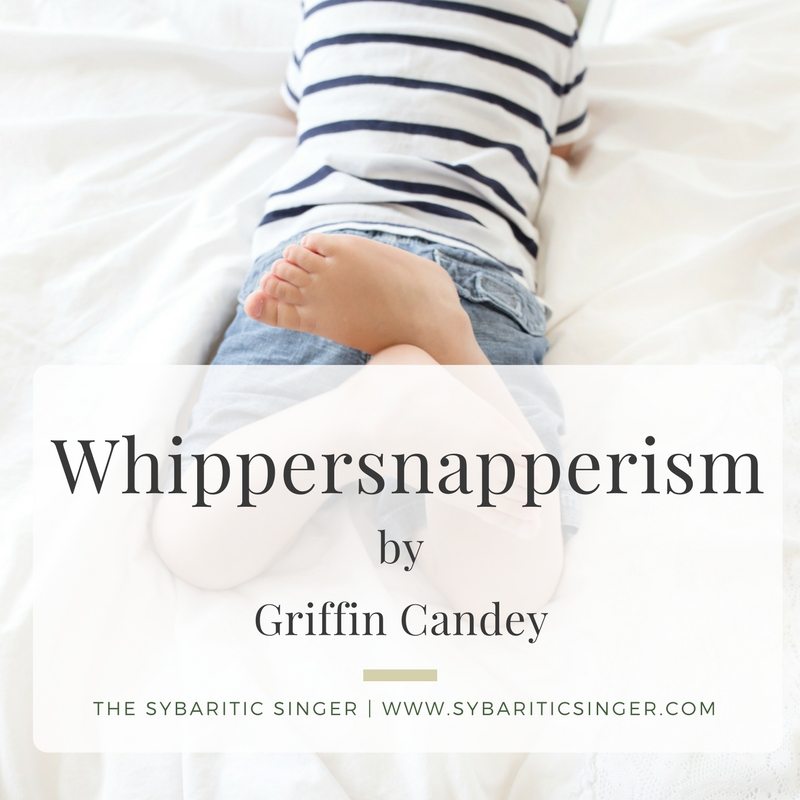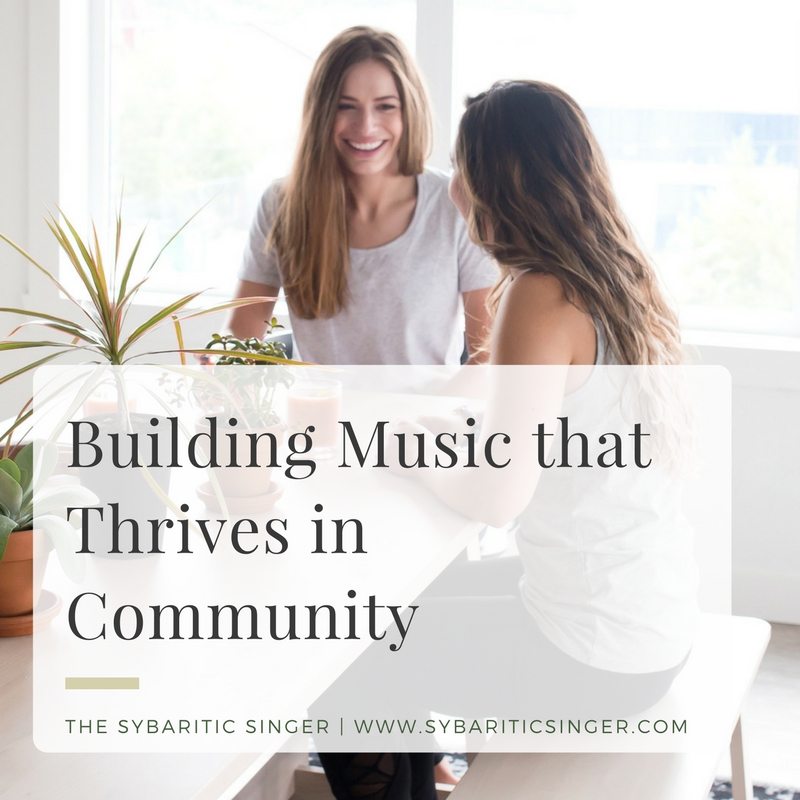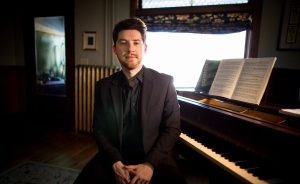Building Music that Thrives in Community
1. Staring Down the Barrel
I recently turned 29, the mythic age that my mother maintained for a handful of decades (until my older sister turned 29, at which point the lie reached critical mass and, unsurprisingly, relocated.) I’ve joked with friends and peers that, while some anticipate a sort of Garden State-esque life-reassessment as they stare down the barrel of Thirty, I’m thirsty for it — I say, bring on the sweater vests; I say, bring on the salt-and-pepper hair. I joke that I’m eager for the unearned respect that comes with middle-agedness, like someone enthusiastically waiting to not be carded at a bar. (From having experienced the latter while waiting for the former, I imagine that they’re similar: once you cross that threshold, the veneer wipes away pretty quickly.)
Even when I do eventually cross that threshold, I’ll admit that I’m hoping the changes that come are mostly superficial — learning continues, growth of personal voice (hopefully) continues, but I pray that the core things that mean the most to me do not, like my mother’s admitted age, relocate. For instance: I decided very early on that the value of my career does not have a one-to-one connection with the prestige of the pieces that I write or their premieres — I also decided very early that the value of my career, to me, is directly connected to the fulfillment of my performers, of my commissioning bodies, and of my audiences. I hold these things close to me; I remind myself of them often.
According to widespread wisdom, the combination of these beliefs is a recipe for relentless depression, considering the many catch-all phrases to the contrary — “you can’t please everybody all the time,” or “the only person that you should be competing with is yourself,” or “(You Can) Go Your Own Way” by Fleetwood Mac, et al. (If it fits on an minimalist Pinterest cross-stitch, it applies here.)
That simply doesn’t jive with me. Admittedly, the non-jiving almost certainly comes from being an opera composer, a subset which requires an almost unrelenting amount of collaborative balance, of listening, of push-and-pull — to the composers who’ve sought advice about how to get into writing works for the stage, I’ve always advised: “if you’re not okay with sharing creative agency, you should not write operas.” It is not for someone who expects to be central. The theater’s needs are important, and must be important to you; the audience’s and cast’s needs are important, and must be important to you. It is a exercise in collective trust.
I’ve always advised: “if you’re not okay with sharing creative agency, you should not write operas.”
Under those descriptors, I can understand why folks stray towards Fleetwood Mac. There’s something understandably difficult about handing over something that one spent months creating to folks who will, in ways either subtle or unsubtle, change it — like bringing a family heirloom cake recipe into a kitchen full of folks that want a certain size cake, a certain flavor, a certain fondant. Some folks’ response to this is to never share. That response, to me, sounds like a recipe for relentless depression.
Perhaps it is youthful naïveté, but I never want to give up that messy, many-handed process. While disagreements come and go within them, the end process of a true collaboration, one in which everyone freely offers their own experiences and expertise, is big work with a human voice. It makes the work about something more than me, taking the composer’s inherent geocentrism and realigning it to show a larger picture through a larger lens. I love that process. I am always struck with wonder to experience that process — and again, that’s something that I hold at my core — and again, I pray that the process of age does not take that away from me.
If I am to inevitably lose that wonder with age, I’ll pick a new profession tomorrow.

2. Cut Me Down to Size
I only tie these pieces of myself to my age because I’ve received a lot of advice to the contrary, especially from my elders. Repeatedly, I hear two central things: that my “priorities will change” as my career progresses, and that I will find “my people” who will “understand” my music (and “faithfully execute” it.) As a young composer, these seemed ironclad — now, they frighten me. What priorities will change? Who are these mythic interpreters of my music — what woodwork are they crawling out of, and what makes them different than everyone else?
Repeatedly, I hear two central things: that my “priorities will change” as my career progresses, and that I will find “my people” who will “understand” my music (and “faithfully execute” it.)
Flash back, a few months ago: I discussed a commission over coffee with a choral director from a local university — a dynamo of a director and a tremendous advocate of new music. Scheduled to premiere alongside Vaughan Williams’ Dona Nobis Pacem, I assumed that I would draw my ensemble from what was already hired for the Vaughan Williams; when the director brought up instrumentation later, however, she said:
“Oh, no: write for whatever you’d like! — we’ll hire whoever you need, just say the word.”
Seemingly magical words on the surface — but they struck me, for some reason. I have no doubt that the offer came from a place of generosity; I don’t hold them against the director (and I thanked her for offering it to me at all,) but it seemed indicative of a deeper trend. Why was this automatically made available to me? Why am I the center point of this contract, not the needs of the ensemble or the message?
Flash again: one displeased online commenter noted after the Met’s recent The Exterminating Angel premiere that the score called for “at least twelve percussionists,” playing both standard fare and “six antique cymbals, four saucepans, four tuned gongs, two bell plates, a newspaper, a small mark tree, a door slam (yes, they had a door slam in the perc section just for this,) two large stones, three small whips, and a lion’s roar.” (It reminded me of being a kid and dumping out the entire tub of Legos, even though I was just building a little house.)
Flash to a huge, multi-ensemble concert that my alma mater organized to feature the career of a famous alumnus — and that composer almost not attending the concert because he disagreed with the way that the conductor has interpreted one of the pieces. He attended in a t-shirt.
Flash to a conversation that I had with a composer at a competition who boasted that he had composed twenty-three (grand!) operas, only two of which had been workshopped or performed. When I asked if he had smaller versions of the orchestrations, he acted as though I had slapped his mother across the mouth.
Flash to a phone conversation that I had with a vocalist friend who described a recent premiere fiasco, wherein a respected composer (a) delivered the new chamber orchestra work several weeks late, (b) delivered it as a semi-illegible handwritten score, and (c) refused to extract or deliver any parts — but suffered no financial consequences.
How did we get to this point?

3. Decentralization of Self
If I were to buy any minimalist Pinterest cross-stitches, I’d likely choose the oft-quoted Stravinsky line:
The more constraints one imposes, the more one frees one’s self. And the arbitrariness of the constraint serves only to obtain precision of execution.
I think about that early advice that folks gave me all the time now: that my “priorities will change,” and that, at a certain point, I will find “my people” who “faithfully execute my music.”
My priorities, currently, are centered on other folks’ fulfillment — I don’t want them to change. I like putting together projects that are fulfilling for people. No, I cannot make every person happy; that does not mean that I should entirely abandon the pursuit. Also, I’ve found some of “my people” who understand and thoughtfully “execute” my music, but I also adore working with new folks. (Often, working with new collaborators — and their sometimes unfaithful execution — instructs me how to communicate more clearly, how to tell better stories, how to cut the fat.)
We’ve reached some point of fetishization about the ineffability of composers, about their having A Grand Vision of which they are the only interpreter and true executor — like the early Catholic church beaming God through a Pope of their choosing. This, to me, only leads to (a) composers buying wholeheartedly into the lie, and (b) performers, as a result, having a resoundingly bad time while performing new music. This is a broken system that hurts everyone involved.
Luckily, whenever I lean towards wanting focus, something comes along and reminds me how many other folks are in the kitchen. It reminds me that we’re making a meal together, for ourselves and for others.
Let’s decentralize a bit — let’s realign the camera to include a bit more of the crowd, a few more faces, a bit more scenery. Luckily, whenever I lean towards wanting focus, something comes along and reminds me how many other folks are in the kitchen. It reminds me that we’re making a meal together, for ourselves and for others. Their satisfaction is central, not mine; their experience in central, not mine. I can contribute my voice, I can throw in my ideas, I can be a leader in certain areas — beyond that, there is no larger place for me.
I never want time or age to change that dynamic — if it does, I’ll pick a new profession tomorrow.
 Griffin Candey (b. 1988) is an American opera composer dutifully committed to creating vocal and theatrical works that, by approaching forward-thinking subject matter, aim to both expand and preserve those genres.
Griffin Candey (b. 1988) is an American opera composer dutifully committed to creating vocal and theatrical works that, by approaching forward-thinking subject matter, aim to both expand and preserve those genres.
At the core of Candey’s vocal music is a level of practical vocal finesse that vocalists and interpreters praise for its “prosody that showcases both the words and the singers,” its “intuitive rhythm,” and its “lyricism and emotional depth.”
Candey’s latest opera, Sweets by Kate – described as “hilarious and moving,” “a piece with charming and elaborate complexity,” and “a meaningful and beautiful work of art” – was recently chosen for the 2017 line-up of Fort Worth Opera‘s Frontiers Festival and was listed by Operawireas One of the Ten Must-See Operas of the 2017 Summer Season. The comic chamber work, commissioned and premiered by the Midwest Institute of Opera in July 2015, recently saw productions at Boston University’s 2017 Fringe Fest, at Marble City Opera of Knoxville, TN (May 2016) and with NYC’s OperaRox Productions at the historic Stonewall Inn (July 2017.) The next three years will also see the premieres of a broad range of vocal works – chamber song cycles for Megan Ihnen and the Seen / Heard Trio, for Brooke Larimer and the BEO String Quartet, for Hillary LaBonte and the Mid-American Center for Contemporary Music, for San Francisco’s Ann Moss; chamber operas for both Marble City Opera (Follow Suit) and another forCleveland Opera Theater (an adaptation of Federico Garcia Lorca’sThe House of Bernarda Alba;) and an original, conservation-themed choral cantata with the Marquette Choral Society (The Night Psalms.)
